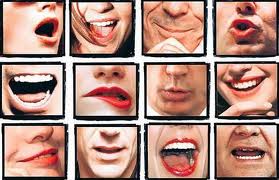Numerous factors dictate a real estate agent’s success, but a new study in the “Applied Financial Economics” journal explores what impact an agent’s physical attractiveness may have on their prosperity.
Entitled “Broker beauty and boon: a study of physical attractiveness and its effect on real estate brokers’ income and productivity,” the study, authored by Sean P. Salter, Franklin G. Mixon Jr and Ernest W. King, controlled such details as the age of the property, its size, the number of bedrooms and bathrooms and other technical details.
The results were expectedly interesting. For instance, male agents, as both listing agents and selling agents, are associated with lower house prices than similarly attractive female agents; that said, gender had no discernible effect on how long a home was on the market.
Beyond gender, attractiveness is also associated with a higher final sale price for a house, and attractive listing agents had twice as large an effect on house prices as that of attractive selling agents.
As with gender, though, the attractiveness of a selling agent did not impact the listing time for a home. And even though attractive agents may command higher selling prices, they do not necessarily outperform their less attractive counterparts; though their homes may sell for more, they also sell fewer properties, and the final sale totals balance out.
To explain the study’s findings, the authors pose two hypotheses. One, that attractive agents are lazier than non-attractive agents, and they use their physical beauty to compensate for their general lack of productivity; or two, that because they are attractive, the agents have greater access to higher-priced, more elite listings, but are no better at selling them than non-attractive agents.
According to a Big Think summary of the study by Marina Adshade, the authors are more inclined to agree with their second hypothesis.
“The authors of this paper side with the second explanation – that agents don’t actually use their beauty to sell properties more successfully, but rather are better at attracting listings that they can sell for higher prices,” she wrote.
The study at hand, however, is hardly the first academic foray into the correlation between physical appearance and monetary success. In a recent piece in The New Yorker magazine, James Surowiecki cited the work of U.T.-Austin economist Daniel Hamermesh, who has studied for nearly 20 years the role that appearance plays in the workplace and recently collected his findings in a book titled “Beauty Pays,” which, as Surowiecki noted, indicates with its title what his ultimate findings were.
“In the U.S., [Hamermesh] finds, better-looking men earn four per cent more than average-looking men of similar education and experience, and uglier men earn thirteen per cent less,” Surowiecki wrote. “At today’s average wage rates, that means that a man with above-average looks can expect to earn $230,000 more over his career than his ill-favored peers. (The numbers are similar, if less dramatic, for women.)”
Nearly all professions follow that trend, Hamermesh has found, even in positions where physical appearance would not seem to make much of a difference. But beyond the purely physical benefits of beauty, there are also complementary perks that could explain the track record of attractiveness, such as confidence, which studies have suggested is naturally higher in attractive people and may, as a result, instill more faith in customers dealing with that employee.
And maybe that final observation is the key point? Is it possible that higher-priced listings go to more attractive agents because they project a more confident attitude?

